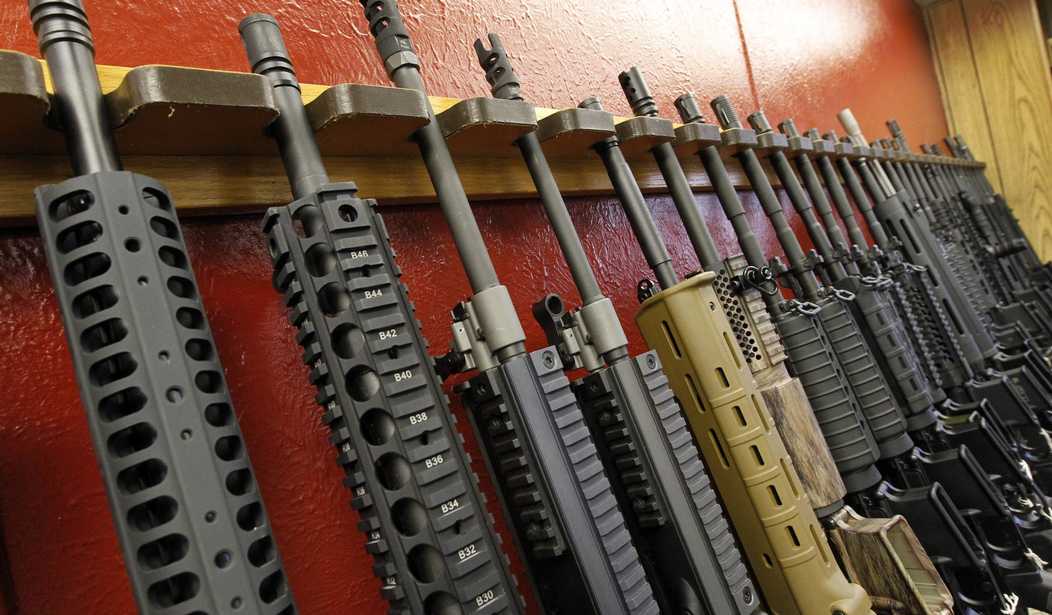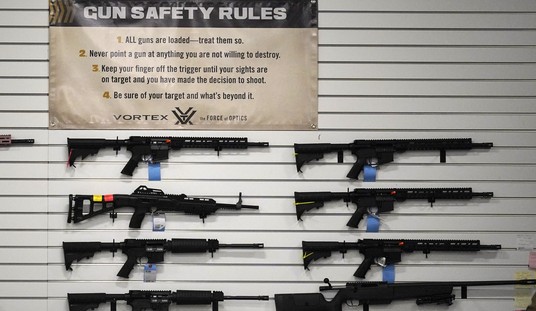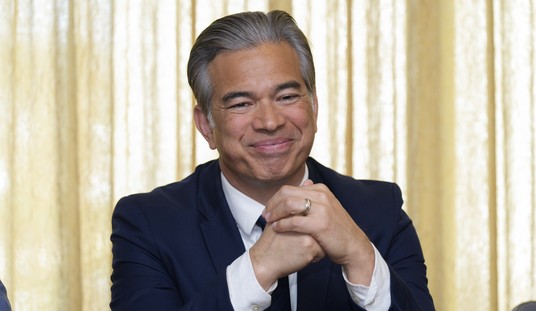AP Photo/Alex Brandon, File
Anti-gun activists always kick it into high gear in the aftermath of a mass shooting. Their response is downright ghoulish in how they ignore the horrors of what happened so that they can get a jump on scoring political points. Most of the time, even a witless fool could see that the measures they’re proposing would have no impact on the shootings, but still, they persist.
Far too often, they’re successful in their efforts. They get laws passed, laws they claim will prevent mass shootings. In particular, they love the idea of universal background checks and claim those will work to stop these attacks.
Only they don’t.
They fail so spectacularly that even ABC News has to admit they typically don’t work.
Laws that have been passed in the aftermath of some of the most extreme instances of gun violence in the U.S. would not have necessarily prevented previous shootings, according to an ABC News analysis.
For example, while much focus has been put on curbing the illegal sale of guns, an analysis of all 17 shootings over the last two decades where 10 or more victims died shows that each of the massacres involved legally-purchased guns.
…
There have been three mass shootings over the past 20 years where guns were first purchased legally, and were then obtained by the shooters who were under-age and would have been too young to procure a weapon on their own.
That was the case in Columbine, where the guns were bought by so-called straw purchasers, meaning people who are legally allowed – and in this case, old enough – to buy guns who buy them with the intention of selling them to people who cannot buy them directly.
The Sandy Hook and Sante Fe High School shooters both used legally-purchased guns taken from their parents.
In other words, all three broke existing laws to obtain their guns.
- The Santa Fe shooter stole his guns
- The Sandy Hook killer murdered his own mother to take her gun
- The Columbine duo had someone of legal age conduct a straw purchase
Additional background checks aren’t going to solve a damn thing, especially with regard to mass shootings.
However, ABC does claim that some gun laws have a positive effect. Maybe.
By contrast, other specific legislation – like the banning of bump stocks and the creation of extreme risk protection orders – could potentially have played a role curtailing more than six of the shootings.
Of course, that’s speculation. That speculation continues, though:
It is impossible to say with complete certainty which shooters would have warranted enough cause for alarm before the shooting to prompt an ERPO, should one have existed in their state, but Brown said that cases could be argued for the shooters in Virginia Tech, Sandy Hook, Columbine and the Aurora movie theater shooting.
There is one that’s she’s certain about, however: the alleged Parkland shooter, who has not yet gone to trial.
Brown said that “there were so many signs on social media, from educators, from other students,” about the former student, who is charged with killing 17 students and educators at Marjory Stoneman Douglas.
“He is precisely the kind of profile that would be the kind of profile that an extreme risk order would be issued by a court,” she said. “Had a similar law been effect in Florida that could have been prevented.”
That’s true, and he probably is the textbook case. In the immediate aftermath, even I asked how no one noticed the big red flags with this kid.
However, Brown may well be wrong about that case being a sure thing.
You see, the killer in Parkland had a long history of issues. Those issues, though, were the kind that could have barred him from being able to purchase a firearm legally if they’d been followed through on, and the fact that they weren’t has been a major black eye for the Broward County Sheriff’s Office.
If those laws weren’t followed through on, how can anyone be sure a red flag order would have been pursued for the Parkland killer? You can’t. That’s far from a slam dunk.
Further, while those looking back on the Virginia Tech, Sandy Hook, Columbine, and Aurora theater shootings can see all the warning signs clearly, there’s little reason to believe anyone would have put those pieces together beforehand. None at all.
So what we do know are that universal background checks would have done nothing and the best anyone can do is guess that over the last 20 years, a red flag law might, sort of, maybe have stopped a few mass shootings.
Let’s say, for the sake of argument, that I concede that point.
So what?
If mass shootings make up some ungodly number of murders as gun control advocates claim, and red flag laws would have stopped, at most, five of those, then the benefits are questionable at best. We need to ask if the risks of such orders outweigh the reward. How many people would have had their Second Amendment rights infringed upon for no good reason, all because someone felt a little uncomfortable?
And I’m not convinced that some of those killers would have gotten a red flag order against them even if they’d existed. The Columbine duo were kids growing up in houses without guns. It’s unlikely anyone would have pursued the order under the circumstances. The same is true of the Sandy Hook killer. He owned no firearms. If an order had been issued, then we can’t rule out the possibility that after his mother’s weapons had been taken, he’d have murdered someone else for their gun.
When you play the speculation game, the very best you can do is claim that a law might have helped. However, you have to provide convincing evidence that it would have, and even ABC News had to admit that the benefits of gun control laws are minimal at best.








Join the conversation as a VIP Member